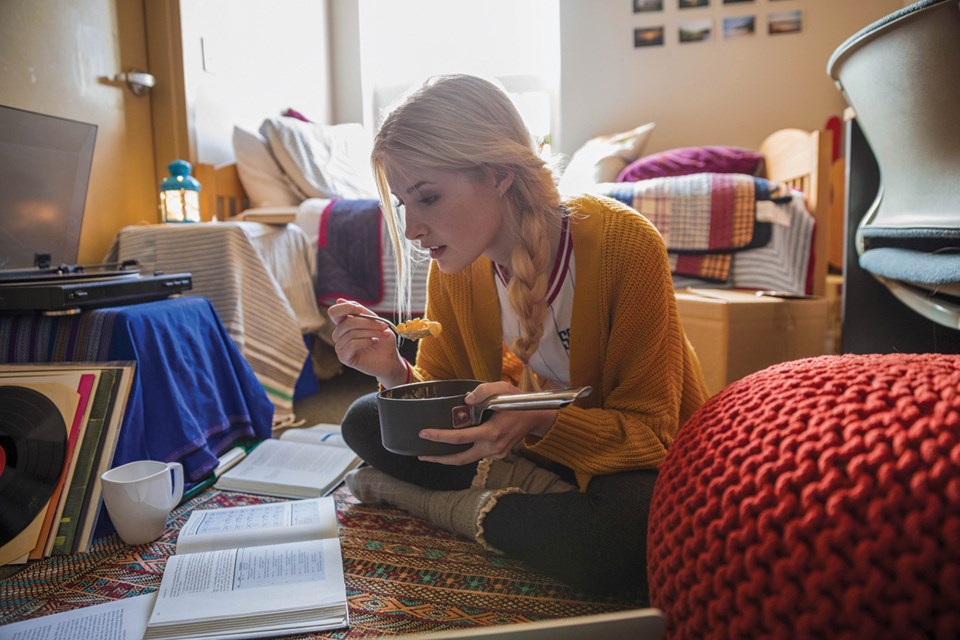Keeping to a schedule and reaching out virtually to connect are some of the ways mental-health workers are encouraging people to fend off loneliness during the COVID-19 pandemic.
Working from home has become the new normal during the pandemic, but too much time at the computer can also have negative consequences for one’s state of mind.
“This year has thrown us many curve balls by changing up our routines and halting future plans,” said Pascale Jendral, a program staff member at Pathways Clubhouse, a local not-for-profit mental health organization.
“A schedule of getting up, getting dressed, eating breakfast and commuting to work soon turned into, getting up, turning on our computer/phone and starting emails or Zoom meetings. Our routine blocks seemed to have been knocked down.”
Although Pathways Clubhouse couldn’t provide specific statistics on the number of people in Richmond currently suffering from isolation or loneliness, Jendral and her co-workers have received numerous referrals over the past few months. And that’s just from those who have internet connections. Those who don’t are even more challenged during the pandemic, Jendral added.
Pathways Clubhouse has offered some people devices so they can connect to virtual events through Zoom and Facebook.
“During the pandemic, we’ve been creative about the ways this work can be done, offering options for members to either engage with us from home virtually or onsite at the Clubhouse,” said Jendral.
Overcoming isolation
Following are some of Jendral’s suggestions to help people feel a little more normal in abnormal times.
1: Go for a stroll
If your daily fitness comes from going on a walk during your lunch break at work, see how you can continue that routine from home. If your motivation came from walking with others, see if those colleagues or friends are your support team. For example, you can hold each other accountable by sending a picture of where you walked or something you enjoyed on your walk.
2: A virtual meal with friends
Food is a communal experience and not having large in-person gatherings has impacted many of us, explained Rani Wangsawidjaya, a public health dietitian with Vancouver Coastal Health. Wangsawidjaya said she did a social baking night with friends, where they all caught up while trying out the same recipe.
3: Join a book club
If you enjoy reading and want to connect with others, Richmond Public Library has a book club where you can call or video chat with a small group of other readers for an hour about a book selected by a librarian.
4: Drive-in movies
There is a drive-in movie theatre in Langley. You can pull up your car and tune your radio to the movie playing in the theatre. There’s also the option to do a movie night with friends and family via Zoom, Skype, Netflix party or other digital options.
5: Volunteering Volunteering can be a great way to help people connect with others and feel a sense of purpose. Richmond Cares, Richmond Gives is looking for volunteers to help several different organizations.
6: Knowing you aren’t alone in loneliness
The nightly 7 p.m. cheer throughout the city was an uplifting and uniting experience. We can still share this sense of togetherness in our loneliness by going out for a walk and seeing other people pass us. Share a friendly nod or a wave. Or simply enjoy being in the space of others by sitting on a park bench.
For more information, go to pathwaysclubhouse.com/get-help/mental-health-toolbox.



